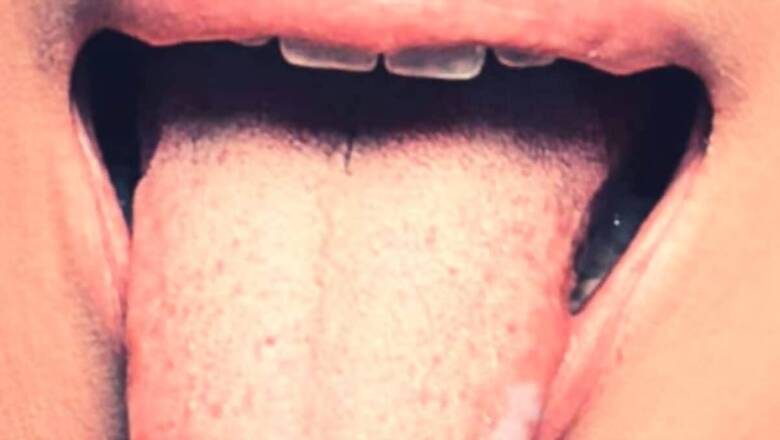
views
A shocking time-lapse video has revealed how tiny white mumps on your tongue can transform into tongue cancer over the years. As per Cleveland Clinic, tongue cancer is a type of head and neck cancer. It occurs when cells on your tongue grow and divide at a rapid speed. In the video, an otolaryngologist named Dr Christopher Chang has warned that the small white spot on the tongue, leukoplakia has a little chance of developing into a cancer. The Fauquier ENT video spans over 15 years, showing how a white spot on the side of a tongue can transform into leukoplakia after three years. An otolaryngologist, or ENT, is a medical specialist who diagnoses and treats conditions impacting your head and neck.
The chances of developing tongue cancer are much higher if the leukoplakia develops into a lesion erythroplakia. According to ScienceDirect.com, Erythroplakia is any lesion of the oral mucosa that presents as bright red velvety plaques. These plaques cannot be characterized clinically or pathologically as any other recognizable condition’.
White patches on the mouth or tongue are irregular in shape, raised and painless. However, they can’t be rubbed away and could be caused by several things. As per the National Health Service, these patches could be caused by biting and burning your tongue, anaemia and even scarlet fever. Scarlet fever causes a red, bumpy rash that spreads over most of the body. It is treated with antibiotics.
Dr Chang has warned that about 10 per cent of leukoplakia cases can lead to cancer.
A general practitioner at NHS named Dr Rachel Ward of Woodlands Medical Centre in Didcot has revealed the reason behind these white patches. Dr Rachel said that these white patches are caused by chronic exposure to irritants such as smoking. The practitioner added that the patches are usually non-cancerous but can be pre-cancerous and should be checked by the physician or doctor.
The NHS also advises you to get checked by a GP or dentist if a white patch in your mouth hasn’t gone away after two weeks. As time passes, the tongue spot changes colour, darkening to a greyish-purple hue. By year eight, the patch develops a dark pink colour and has reached the stage of erythroplakia.




















Comments
0 comment